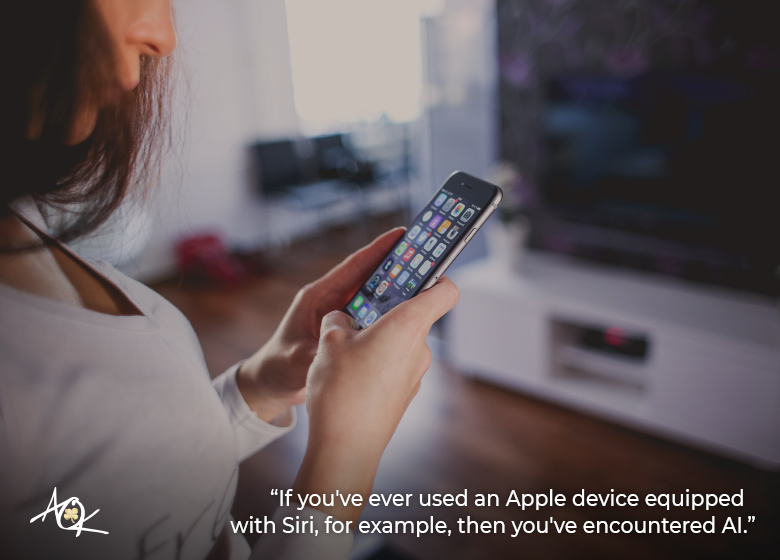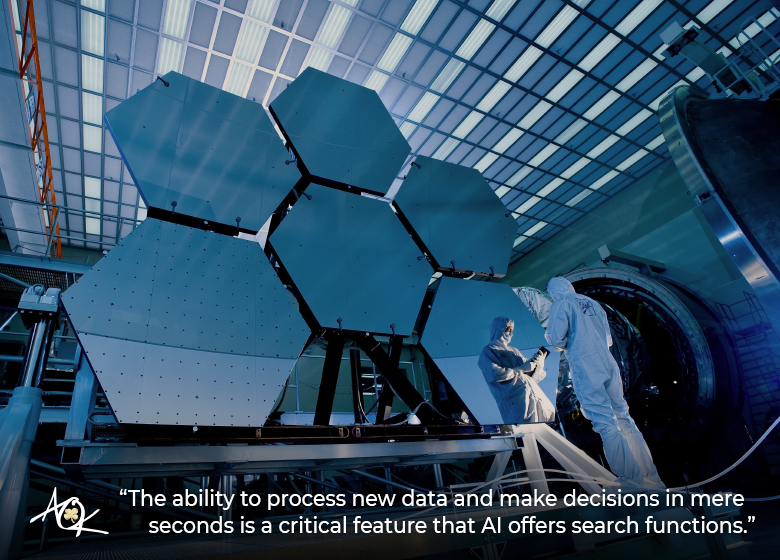One of the biggest, “high concept” ideas in technology, especially in our 21st-century information age, is artificial intelligence (AI). For some, it’s a Holy Grail idea in tech, while for others, it represents a potential threat to human civilization because we may be risking the creation of beings that could surpass us.
The reality of artificial intelligence is, of course, a little bit of many hopes, fears, speculations, and risks, all rolled into one. While many people think of AI as something that we can talk to, interact with, and be understood by, as if it were just another kind of person, AI has many other applications far beyond just giving us an alternative, more natural interface. It is in the area of search that we see a lot of exciting applications for this technology. But first, let’s get a better look at the topic. What exactly is AI? And how is it bringing so many benefits to search?
Intelligence Is Not Always Sentience
The first thing we’ll do is look at the whole concept of artificial intelligence, which means separating truth and fact from the misconceptions of popular culture. One common mistake people make is equating artificial intelligence wholly and entirely with self-awareness. People think that intelligence is a matter of knowing that you exist, that you have thoughts, and wish to interact with others in productive, enriching relationships, which is known as sentience. And while, for humans, intelligence is inextricably tied to self-awareness, intelligence can actually be separated from sentience, or knowing that you exist.
You can broadly define intelligence as the capacity to learn and then implement knowledge or skills. On a purely mechanical level, this is something that computer programming can now do. Moreover, it is something that computer programming can do at a much faster speed than humans, and even on a much larger scale. Artificial intelligence, or virtual intelligence, is merely the ability for digital technology not just to process and record information, but also to analyze it and make new decisions or choices based on the information at hand, plus “guidelines” for how best to make decisions. These guidelines are usually known as algorithms, a complex set of mathematical rules that determine what actions should be taken based on the conditions.
It’s All about the Rules
A simple example of how algorithms work in artificial intelligence is something most people today take for granted: modern laundry machines. Laundry machines used the much friendlier term “fuzzy logic” to describe how they operate, but in reality, this is all about algorithms. A laundry machine manufacturer lays out the ground rules for what constitutes good, properly washed clothes, setting aside guidelines like how much water to use, what temperature that water should be, and even how long the spin cycle should be. All of these different factors depend on what the laundry machine “finds” when clothes are put into it.
In this case, the AI of a laundry machine would use its sensors to determine just how much dirt, grease, and clothes are in the machine. Based on its findings, it would then adjust those factors like water temperature, spin cycle, and even length of washing time based on the current mass and what state of cleanliness the clothing is in.
Taking AI to Search
As you can see, simply creating a set of good algorithms means taking a lot of the burden that comes with trial and error or troubleshooting off of the shoulders of people and placing it on technology. When you take the ability to make informed decisions based on available data and scale that up to every single piece of information that is accessible online, the value of AI to search becomes incredibly apparent. The largest technology corporations in the world including Amazon, Apple, and, of course, Google, have all directed significant amounts of time and money into AI and algorithm research because AI is only as good as the algorithms that guide it.
AI Today
AI and its algorithms are already in use in many different aspects of our lives. If you’ve ever used an Apple device equipped with Siri, for example, then you’ve encountered AI. Artificial intelligence is what allows the Siri audio interface to understand and interact with humans. Of course, anyone who’s familiar with Siri knows that this is not yet a 100% perfect and elegantly working technology. But at least we’re now at the point where basic, simple human interactions can be understood and responded to by digital systems.
Amazon, on the other hand, has been implementing AI and algorithms to improve the shopping experience. Every time you buy a book, a video, or stream media from Amazon services you are adding to a total profile of your purchases, preferences, and buying behavior that is then stored and cross-referenced with the sum of all customer data that Amazon has. Then, your profile is compared with the vast inventory of available products that Amazon has to offer. In other words, Amazon’s AI efforts are dedicated to remembering what you like and figuring out what else you might be interested in based on that data and recommending items to you for purchase.
Then there’s Google, and they are currently the most successful at executing the mammoth task of letting searchers quickly find whatever information they want from every single piece of online data available on the planet right now. They have a hybrid technique of providing algorithms while also looking at the data most reliably deemed useful by all users to create a hierarchy of information that is optimized to what a person will find most relevant.
The ability to process new data and make decisions about which choices are useful to or accurate for a person doing a digital search—in mere seconds—is a critical feature that AI offers search functions. While Google is currently king, many companies are developing and upgrading their offerings, that’s not to say some new, innovative company might not find an even better method to improve lives with smart decision-making.
About The Author
Marketing Team
The AOK Marketing Team is a diverse group of amazing individuals driven to help all of our clients succeed. Great people are everywhere, and we believe that people should control their workday, their work environment, and where they live. We have team members in 9 countries: United States, Canada, Egypt, Belgium, Ireland, Australia, India, Pakistan, and Hong Kong.
How can we help you?








